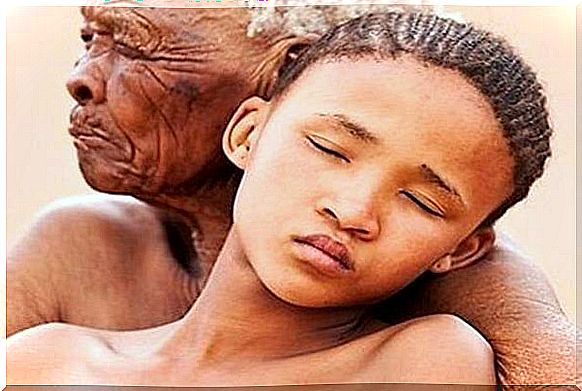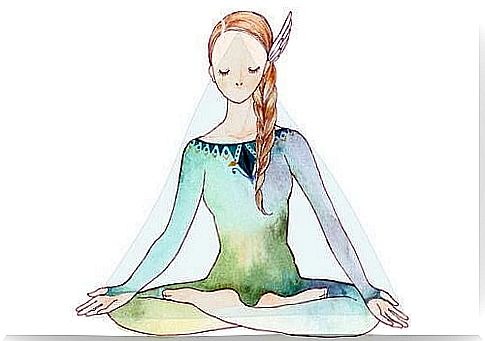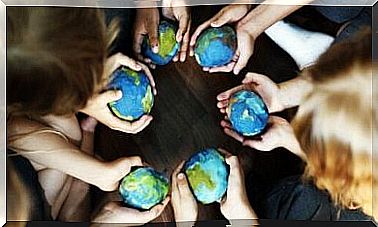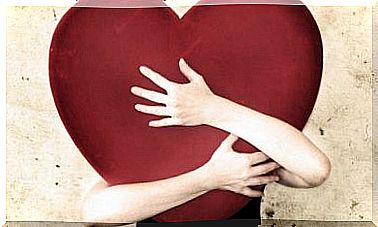The Effect Of Kindness On The Brain

No act of kindness, no matter how small, is a waste of time. These gestures are full of affection, appreciation, and true wisdom. They have a beneficial effect on the brain and connect us with others, in the most complete and noble way there is.
Charles Darwin already pointed out to us the importance of kindness in human beings. According to Darwin, this is our strongest and most valuable instinct, the instinct that makes survival possible not only for humanity as a species, but also for all living things. However, kindness is not practiced often enough.
Kindness has a very concrete place in the brain. It shares the same neural networks as empathy. While one identifies needs, the other translates this feeling into a spontaneous and profound act of promoting good and offering help and happiness.
This exceptional mechanism has a concrete purpose: to make us understand that we are much stronger when we are connected with others than when we are alone. This is an interesting point that we would like to delve into a little more deeply.

We are programmed to be kind
Jerome Kagan is a well-known emeritus professor of psychology at Harvard who champions the idea that the brain is programmed to be kind. It’s a biological tendency, as Charles Darwin said, where love, compassion and care serve a special purpose: to enable us to survive as a species.
However, just because the brain has the hardware to be kind doesn’t mean that kindness is (always) a priority for everyone. Other biological tendencies are also important, and unfortunately they have a lot of influence on our behavior. These tendencies include anger, jealousy, and of course, violence.
Also Daniel Goleman contributes to this discussion by our affection to recall that one of the most intense emotions that can experience our brains. The whole limbic system reverberates when we feel it. Also, neurochemicals like oxytocin are released, which conducts a whole orchestra of positive emotions, in which empathy, reciprocity and the desire to do good ennoble us even more as a species.
This is an amazing phenomenon that deserves to be practiced.

According to these human emotion experts, kindness is a transmitted instinct that taught our ancestors that in a hostile environment, it is not the strongest that survives, but the one with the best support network.
Emotions are contagious, and our mirror neurons allow us to recognize another’s fear in order to anticipate danger, or to understand that helping is a way of investing in ourselves so that we too will be helped in the future. if we need it.
Practice compassion to take care of your mental health
Dacher Keltner, a psychology professor at the University of California Berkeley and co-director of the Greater Good Science Center, explains that the values that form the backbone of modern societies completely destroy our natural tendency to compassion and kindness.
Money is one of the things that individualizes us, separates us, and makes us compete with each other. We lose our sense of social cohesion and the desire to have our best interests at heart because we suddenly turn into each other’s adversaries.
So much so that, as Keltner explains in his books such as Born to Be Good, the richest people, in general, are the least compassionate.

Practicing Compassionate Meditation
Interestingly, though, compassion, like kindness, can be practiced. Once you have become aware of the fact that you have removed yourself from your essence and that you have strayed towards selfishness, materialism or a lack of authenticity in your personal relationships, it may be time to think about the need to change.
According to a study published in the journal Psychological Science , adults can train themselves through compassionate meditation to reactivate the parts of the brain that were dormant or simply left unused.
- Compassionate meditation is a Buddhist technique based on visualization.
- It includes empathizing with personal situations where a loved one is going through a difficult time.
- You have to actually experience the suffering of this loved one to activate the emotional brain structures, such as the insula, that are specifically related to the need for ease and support.
- The visualization starts with thinking about the people close to your heart, but this circle should gradually be extended to friends, colleagues, neighbors and acquaintances until you arrive at people who are completely foreign to you.
- The basic idea is to empathize with the other person’s needs, pain, and fears, and to experience attachment to the one who is suffering, whoever this may be.

This type of meditation, which involves proper control of breathing and contact with your deepest emotions, proves the presence of neural plasticity, according to researchers. It allows us to relieve stress, and to invest in the well-being of others with an inner wealth capable of changing the world.
Because kindness is the only investment that will always pay off.
Do something good every day; kindness pays off more than money









